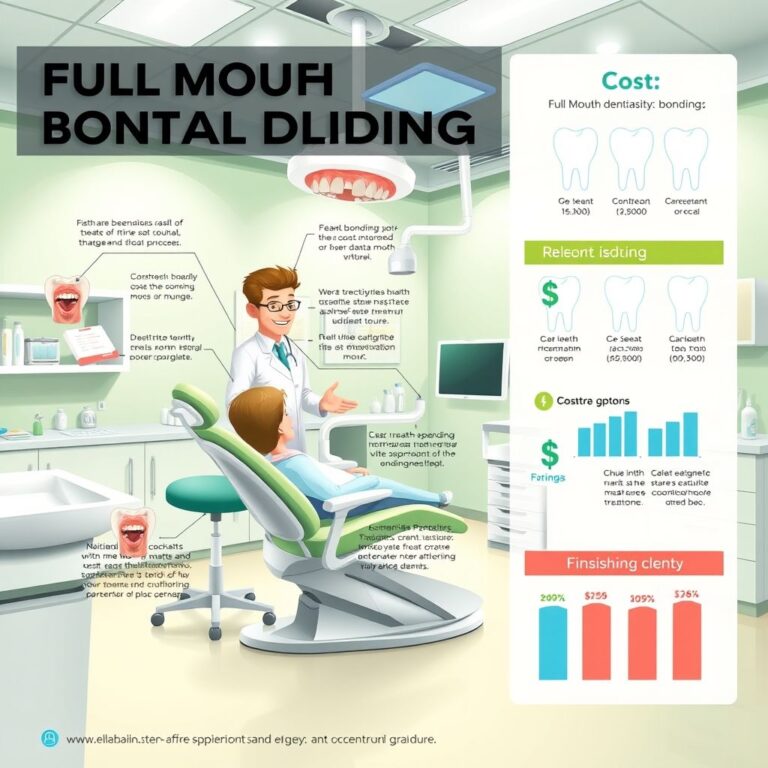Composite Bonding Cost in Liverpool: A Comprehensive Guide
Composite bonding has emerged as a popular cosmetic dental procedure aimed at enhancing smiles by addressing issues such as gaps, chips, discolorations, and misalignments. In Liverpool, the demand for this procedure has seen a significant increase due to its effectiveness and relative affordability compared to other dental treatments. This article provides an in-depth exploration of composite bonding cost in Liverpool, detailing every aspect of the procedure, its benefits, potential drawbacks, and what patients can expect during and after the treatment. By the end of this guide, readers will have a comprehensive understanding of composite bonding and its implications for dental aesthetics and health.

Understanding Composite Bonding
Composite bonding, also known as dental bonding or tooth bonding, involves the application of a tooth-colored resin material to the teeth. This resin is carefully shaped and hardened with a special light, which bonds the material to the tooth, thereby improving the appearance of the smile. This procedure is versatile and can be used for various dental issues, making it a popular choice for cosmetic enhancements.
Benefits of Composite Bonding
- Aesthetic Improvement: Composite bonding significantly enhances the appearance of teeth by correcting minor imperfections such as chips, cracks, and discoloration.
- Non-invasive Procedure: Unlike veneers or crowns, composite bonding is minimally invasive and usually doesn’t require the removal of significant tooth structure.
- Cost-effective: Compared to other cosmetic dental procedures, composite bonding is relatively affordable.
- Quick Process: The procedure can often be completed in a single visit, making it convenient for patients with busy schedules.
- Reversible: Since minimal tooth structure is altered, the procedure is reversible, allowing for future adjustments if necessary.
Composite Bonding Procedure
Initial Consultation
The first step in the composite bonding process is an initial consultation with a dental professional. During this visit, the dentist will assess the patient’s oral health, discuss their cosmetic goals, and determine if composite bonding is the appropriate treatment.
Preparation
Unlike other dental procedures, composite bonding requires minimal preparation. There is usually no need for anesthesia unless the bonding is being used to fill a decayed tooth. The dentist will select a composite resin color that closely matches the patient’s natural teeth.
Application
The dentist begins by roughening the surface of the tooth and applying a conditioning liquid. This helps the bonding material adhere to the tooth. The resin is then applied, molded, and smoothed to the desired shape. A special light is used to harden the material, which is then further shaped and polished to match the sheen of the rest of the tooth.
Post-Procedure Care
Post-procedure care for composite bonding is relatively straightforward. Patients are advised to avoid staining foods and beverages for the first 48 hours and to maintain good oral hygiene to ensure the longevity of the bonding.
Cost of Composite Bonding in Liverpool
Factors Influencing Cost
- Extent of Treatment: The number of teeth being treated and the complexity of the procedure affect the overall cost.
- Dentist’s Expertise: Experienced and highly qualified dentists may charge more for their services.
- Location: The cost can vary depending on the location of the dental clinic within Liverpool.
- Materials Used: High-quality composite resins may increase the cost of the procedure.
- Additional Treatments: Any additional treatments required before the bonding, such as cleaning or other dental work, will add to the cost.
Average Cost
The average cost of composite bonding in Liverpool ranges from £100 to £400 per tooth. This variation depends on the factors mentioned above and the specific requirements of the patient.
Comparison with Other Cosmetic Dental Procedures
Composite bonding is often compared with other cosmetic dental procedures such as veneers, crowns, and teeth whitening. Here’s a comparative analysis:
| Procedure | Average Cost (per tooth) | Durability | Invasiveness | Aesthetic Outcome |
|---|---|---|---|---|
| Composite Bonding | £100 – £400 | 5-10 years | Minimally invasive | Natural-looking |
| Veneers | £400 – £1,000 | 10-15 years | Moderately invasive | Highly aesthetic |
| Crowns | £500 – £1,200 | 10-15 years | Moderately invasive | Highly aesthetic |
| Teeth Whitening | £300 – £600 | Varies | Non-invasive | Enhanced whiteness |
Finding the Right Dentist in Liverpool
Choosing the right dentist for composite bonding is crucial for achieving the best results. Here are some tips for finding a qualified professional:
- Research and Reviews: Look for dentists with positive reviews and high ratings. Online platforms and dental association websites can provide valuable insights.
- Consultations: Schedule consultations with multiple dentists to discuss your needs and assess their expertise.
- Qualifications: Ensure the dentist has the necessary qualifications and experience in cosmetic dentistry.
- Before-and-After Photos: Ask to see before-and-after photos of previous patients to gauge the quality of their work.
- Recommendations: Seek recommendations from friends, family, or other healthcare providers.
Potential Risks and Drawbacks
While composite bonding is generally safe and effective, there are potential risks and drawbacks to consider:
- Durability: Composite bonding is not as durable as other restorative options and may require touch-ups or replacements over time.
- Staining: The resin material can stain over time, especially with the consumption of staining foods and beverages.
- Chipping: The bonded material is more prone to chipping compared to natural teeth or other restorative materials.
- Maintenance: Proper oral hygiene and regular dental visits are essential to maintain the appearance and integrity of the bonded teeth.
Frequently Asked Questions (FAQs)
How long does composite bonding last?
Composite bonding typically lasts between 5 to 10 years, depending on factors such as oral hygiene, dietary habits, and the quality of the bonding material.
Is composite bonding painful?
The procedure is generally painless and does not require anesthesia unless it involves filling a cavity.
Can composite bonding be whitened?
Composite resin does not respond to traditional teeth whitening treatments. If the bonded teeth become stained, they may need to be replaced or polished.
How should I care for my bonded teeth?
Maintain good oral hygiene, avoid biting on hard objects, and limit the consumption of staining foods and beverages to extend the lifespan of your bonded teeth.
Is composite bonding suitable for everyone?
Composite bonding is suitable for most people with minor cosmetic dental issues. However, a dental professional can determine the best treatment based on individual needs.
Conclusion
Composite bonding offers a versatile, cost-effective solution for enhancing the appearance of teeth. In Liverpool, the cost of this procedure varies based on several factors, but it remains a popular choice due to its minimally invasive nature and immediate results. By understanding the procedure, costs, and aftercare, patients can make informed decisions about their dental health and aesthetics. For those considering composite bonding, consulting with a qualified dentist is the first step towards achieving a confident, beautiful smile.
Additional Resources:
- British Academy of Cosmetic Dentistry (BACD): https://bacd.com/
- The British Dental Association (BDA): https://www.bda.org/


